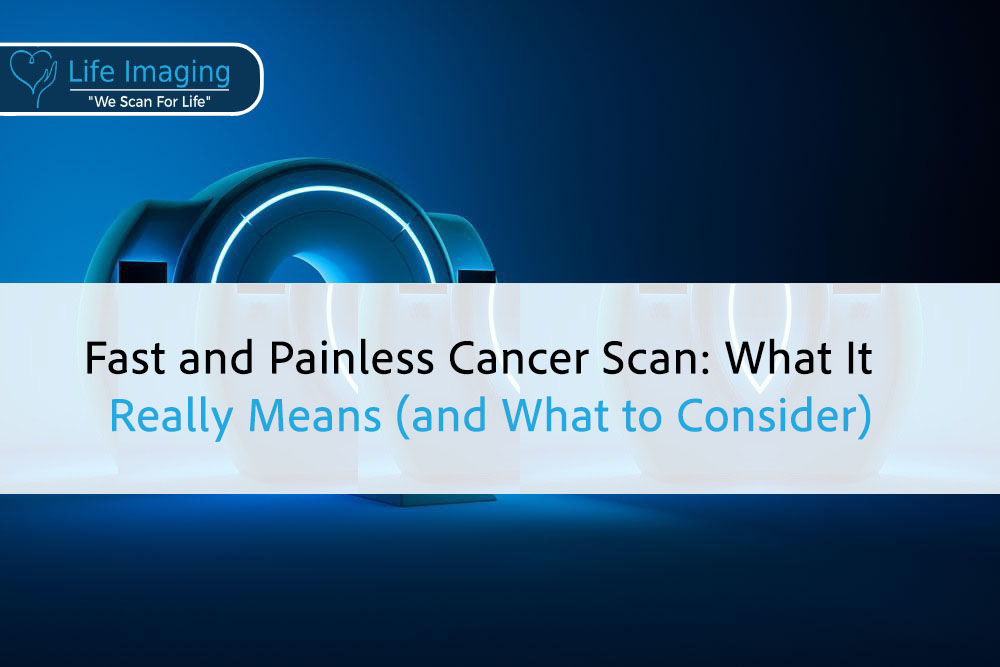
Fast and Painless Cancer Scan: What It Really Means (and What to Consider)
Fast and Painless Cancer Scan: What It Really Means (and
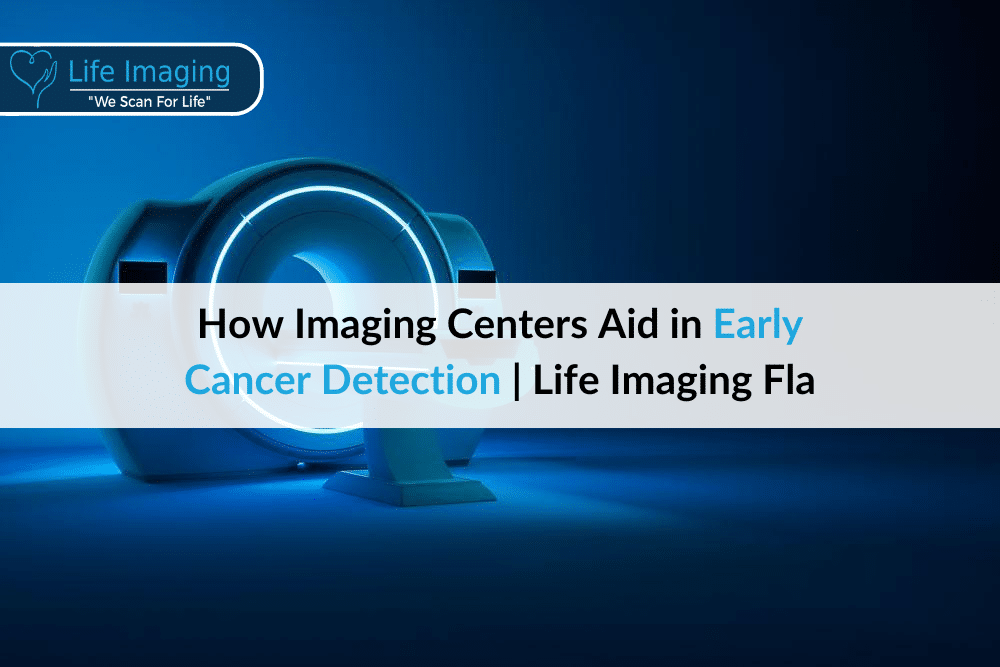
Cancer remains one of the most challenging health issues globally, claiming millions of lives each year. Early detection is crucial in improving survival rates, as it often allows for more effective treatment before the disease progresses to advanced stages. Imaging centers play a fundamental role in this early detection process, utilizing advanced technology to pinpoint cancerous changes in the body before symptoms even begin to surface.
Life Imaging Fla, an esteemed imaging center located in the heart of Florida, specializes in the early detection of heart disease and cancer. Equipped with state-of-the-art technologies and staffed by experienced professionals, our imaging center offers a range of imaging services designed to detect cancer at its inception. These services include low-dose CT scans, PET scans, and more, each offering precise details that are crucial for accurate diagnosis.
From the technological advancements in imaging that allow for clearer, more detailed views of internal structures, to the skilled interpretation by radiologists that ensures accurate recognition of abnormal tissues, the contributions of imaging centers are invaluable.
Join us as we explore the impactful world of medical imaging in cancer detection, highlighting how centers like Life Imaging Fla not only enhance patient care but fundamentally alter the trajectory of cancer treatment and management.
Imaging centers like Life Imaging Fla utilize various advanced technologies to detect cancer at its earliest stages when it is most treatable. Each imaging technique comes with its specific applications, benefits, and suitability based on the location and type of cancer suspected.
Computed Tomography (CT) scans are pivotal in the domain of cancer detection. CT scanners use X-rays to create detailed cross-sectional images of the body, enabling detailed visualization of organs, bones, and tissues. This high-resolution imaging is particularly valuable for pinpointing tumors and understanding their size and exact location, which are critical factors in planning effective treatments.
In cases like lung cancer, CT scans are often employed not only to detect the presence of tumors but also to follow up and monitor the tumor’s response to treatment. According to the American Cancer Society, CT scans are very useful in identifying cancer in its early stages when combined with regular screening programs.
Magnetic Resonance Imaging (MRI) is another powerful tool used by imaging centers. Unlike CT scans, MRI uses magnetic fields and radio waves to produce detailed images of the body’s internal structures. MRI is exceptionally good at imaging soft tissues in contrast to other surrounding tissues, making it invaluable for diagnosing brain tumors, spinal issues, and prostate cancer.
MRI’s ability to differentiate between healthy and diseased tissue makes it crucial in the early stages of cancer detection, particularly for cancers that are difficult to diagnose through other means. The detailed images provided by MRI scans help doctors to make more accurate diagnoses without invasive procedures.
Positron Emission Tomography (PET) scans reveal more than just the structure of body parts; they show how organs and tissues are functioning. By injecting a small amount of radioactive material, areas of high chemical activity in the body show up brighter on the PET scan. Since cancerous tumors often have higher metabolic rates than normal tissues, PET scans are exceptionally useful in detecting cancer and checking whether a treatment is working.
This imaging method is highly effective for not only detecting the presence of cancer but also staging it, which involves determining whether cancer has spread and how far. PET scans are crucial tools in planning cancer treatment, as stated by the National Cancer Institute in [their guide to understanding PET scans](https://www.cancer.gov/about-cancer/diagnosis-staging/diagnosis/pet-scans-fact-sheet).
Ultrasound imaging uses high-frequency sound waves transmitted through the body’s tissues. The echoes are recorded and transformed into video or photographic images. This type of imaging is used extensively to monitor the organs in the abdomen and pelvis, including the liver, pancreas, and ovaries.
One of the significant advantages of ultrasound in cancer detection is its safety and non-invasiveness. It doesn’t use ionizing radiation, making it preferred for monitoring conditions in real-time and frequently used in evaluating the progress of treatments or during biopsies to guide needles accurately.
These varied imaging techniques highlight how comprehensive and integrated approaches are adopted by imaging centers like Life Imaging Fla to detect and diagnose cancer effectively. Each method contributes uniquely to the overall process, ensuring that patients receive the most accurate diagnosis and efficient treatment planning possible.
Each patient at Life Imaging Fla receives a personalized imaging plan based on their specific health conditions and risks. Personalization increases the effectiveness of cancer detection, ensuring that the chosen imaging methods align closely with the individual’s medical history and current health status.
For instance, if a patient has a family history of breast cancer, the strategy might include more frequent MRI scans, recognized for their sensitivity in identifying early-stage breast cancers. This tailored approach not only effectively detects potential cancer but also provides peace of mind to patients, knowing their health monitoring is as precise and individualized as it can be.
Imaging centers like Life Imaging Fla employ electronic health record systems to integrate imaging results with patients’ overall health data. This integration allows for a holistic view of a patient’s health, enhancing the ability to track changes over time and make informed decisions about further diagnostic or treatment needs.
The importance of such integration is profound, particularly for early cancer detection, where changes seen over multiple scans might signify developing issues that require attention. This continuity of information ensures that nothing is missed and that all care decisions are based on the most comprehensive and current information available.
The effectiveness of an imaging center in detecting cancer early heavily relies on the quality and advancement of its technology. Life Imaging Fla invests in the latest imaging technologies to provide clear, detailed images that are crucial for early detection. Cutting-edge equipment such as high-resolution MRI machines and low-dose CT scanners provide detailed images with less exposure to radiation, balancing patient safety with the need for accurate diagnostics.
Moreover, the software used in image analysis incorporates advanced algorithms that help enhance image quality and detail, enabling radiologists to detect even the smallest anomalies that could indicate early stages of cancer. The continual upgrade of technology ensures that the facility remains at the forefront of diagnostic excellence.
The role of highly trained professionals in interpreting imaging results cannot be overstressed. At Life Imaging Fla, skilled radiologists with specialized training in various types of cancer screenings are key to the accurate reading and interpretation of imaging results. Their expertise is crucial in distinguishing between benign and malignant changes, advising on potential follow-ups, and ensuring that each patient receives the appropriate attention based on their imaging outcomes.
These professionals undergo continuous training and certification to keep up-to-date with the latest advancements in imaging techniques and cancer detection. This commitment to professional development helps maintain a high standard of care and ensures that the services provided are based on the latest research and best practices in medical imaging.
Ultimately, the goal of Life Imaging Fla and similar imaging centers is not only to detect cancer but to strengthen preventive care. By catching cancer early or identifying those at high risk, preventive strategies can be implemented that may reduce the chance of cancer developing or catching it at its most treatable stage.
Preventive screenings, public awareness about the importance of regular check-ups, and education on the benefits of early detection are all part of the services offered by imaging centers. These efforts collectively contribute to reduced mortality rates from cancer and better overall public health outcomes.
Through a combination of advanced technology, individualized patient care plans, comprehensive health monitoring, and skilled professional analysis, imaging centers like Life Imaging Fla play a pivotal role in the early detection and management of cancer. Their integrated approach not only showcases the potential of modern medical imaging in battling cancer but also sets a standard for patient-centric care in the healthcare industry.
Continued monitoring is crucial for individuals who have been identified as at risk of cancer or who have had cancer previously. Life Imaging Fla provides long-term monitoring and follow-up using the most appropriate imaging tests based on the individual’s history and specific needs. This ongoing monitoring often involves regular scans to track any changes or developments, helping to catch any recurrence of cancer early or monitor the effectiveness of treatment.
Life Imaging Fla is deeply committed to the Miami community, offering programs that educate the public about the importance of early cancer detection. Through workshops, seminars, and health fairs, they provide valuable information on how regular imaging tests can save lives by detecting cancer early. These community programs are designed to demystify medical imaging and encourage more people to take proactive steps towards monitoring their health.
Accurate diagnosis is the first step in effective cancer treatment. By providing detailed images, the imaging technologies at Life Imaging Fla help healthcare providers diagnose cancer more accurately and at an earlier stage. This accuracy is critical for planning the best course of treatment and improving the chances of a successful outcome. The center’s modern imaging tools enable physicians to see detailed views of the internal organs, allowing them to pinpoint where abnormalities are located and how they are behaving.
Once cancer is detected, the next step is to assess the extent of the disease and develop a treatment plan. The detailed images provided by Life Imaging Fla’s advanced equipment play a crucial role in this phase. They help medical teams determine the size, location, and characteristics of tumors, which can influence decisions about the best treatment methods. For example, precise imaging can indicate whether a tumor can be surgically removed or if other treatments like chemotherapy or radiation are more appropriate.
These images also help in planning surgeries and other treatments, ensuring that interventions are as effective as possible. By providing a clear roadmap of the cancer’s location and spread, imaging centers minimize the risk of invasive exploratory procedures, reducing patient discomfort and speeding up the treatment process.
Beyond patient diagnosis and care, Life Imaging Fla contributes to broader advancements in cancer treatment and prevention. By offering their imaging data for research purposes, they help the scientific community gather vital statistics on cancer trends and treatment outcomes. This data is crucial for developing new therapies and improving existing ones. It also aids in epidemiological studies that track disease patterns, helping public health officials better understand and combat cancer at the community level.
Life Imaging Fla adheres to strict protocols to ensure the safety and quality of its imaging services. The center regularly updates its equipment and technologies to maintain high standards and minimize any risks associated with radiation exposure. The staff at the center are well-trained in the latest safety procedures and are committed to providing a safe environment for all patients.
This dedication to quality is evident in the center’s thorough quality control processes, which include regular reviews and audits of their equipment and methodologies. By maintaining these high standards, Life Imaging Fla not only ensures the safety of its patients but also the reliability and accuracy of its imaging results.
As we’ve explored throughout this article, imaging centers like Life Imaging Fla play a pivotal role in the early detection, accurate diagnosis, and effective treatment of cancer. With advanced technologies and a patient-centered approach, Life Imaging Fla epitomizes the essence of modern healthcare—where precision meets compassion, leading to significantly improved health outcomes.
The importance of early cancer detection cannot be overstated, and the advanced diagnostic tools used by Life Imaging Fla provide the necessary clarity and detail that can make all the difference in treatment success. Their commitment to community education and patient safety further enhances their role as a leader in the healthcare community in Miami, ensuring that individuals have access to the resources and information they need to take proactive steps towards maintaining their health.
Life Imaging Fla understands that behind every image and diagnosis is a person—a family member, a friend, a community member. Their dedication to delivering compassionate care with cutting-edge technology not only sets them apart but also bridges the gap between early detection and optimal health outcomes.
If you are interested in learning more about how our imaging center in Miami, FL, can help you or your loved ones with preventive health screenings, contact us today to schedule an appointment. Take that vital step towards safeguarding your health with a team that cares deeply about your well-being and utilizes the best in medical imaging technology!

Fast and Painless Cancer Scan: What It Really Means (and
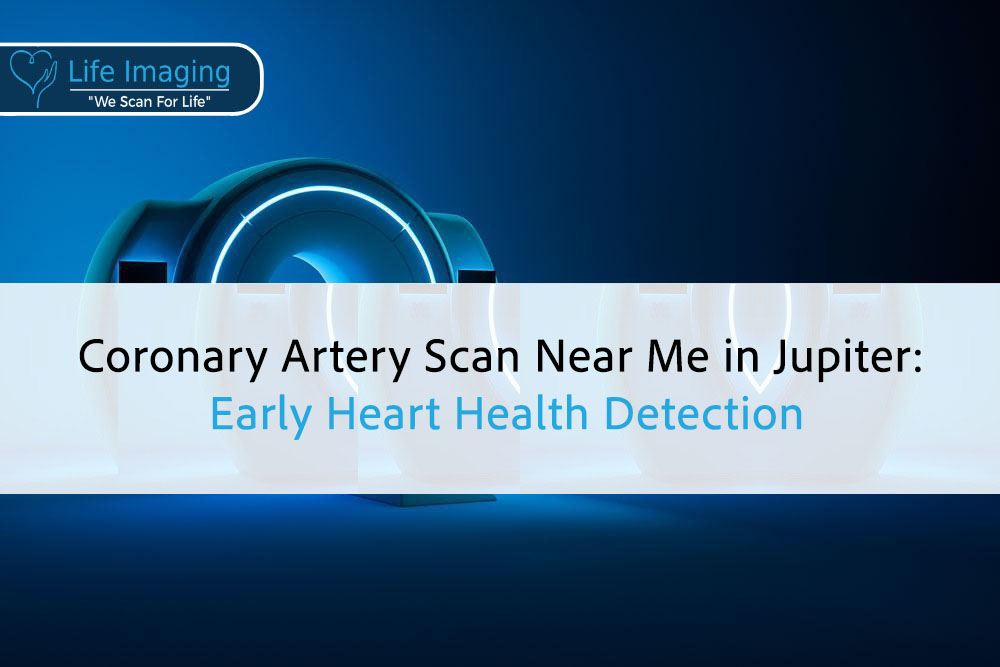
Introduction Your heart works hard every second of the day,
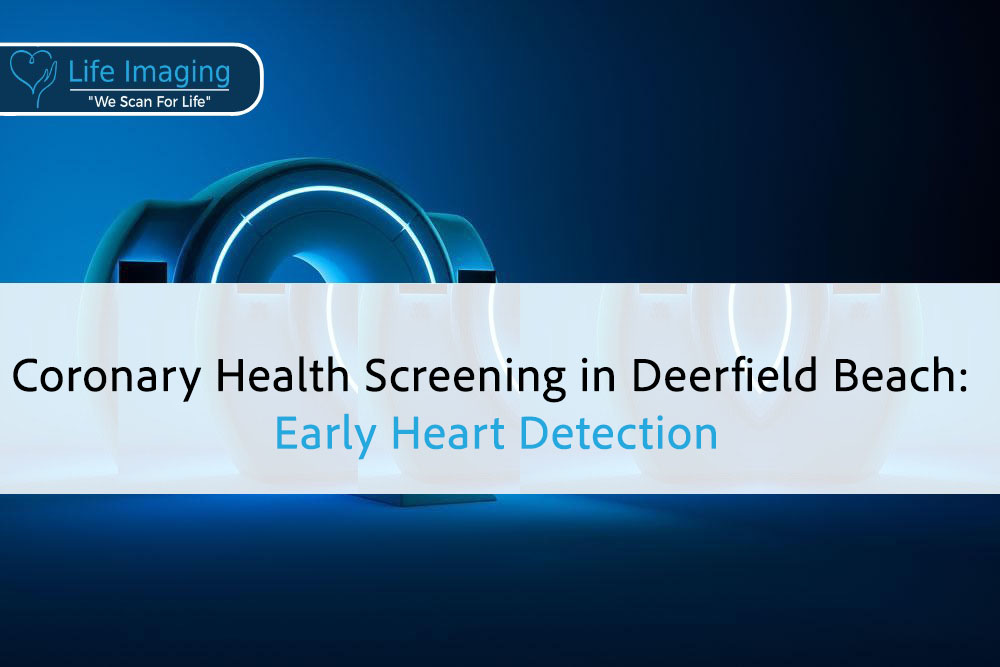
Introduction Your heart works around the clock, but changes inside

Introduction Your heart works nonstop, often without a single complaint.
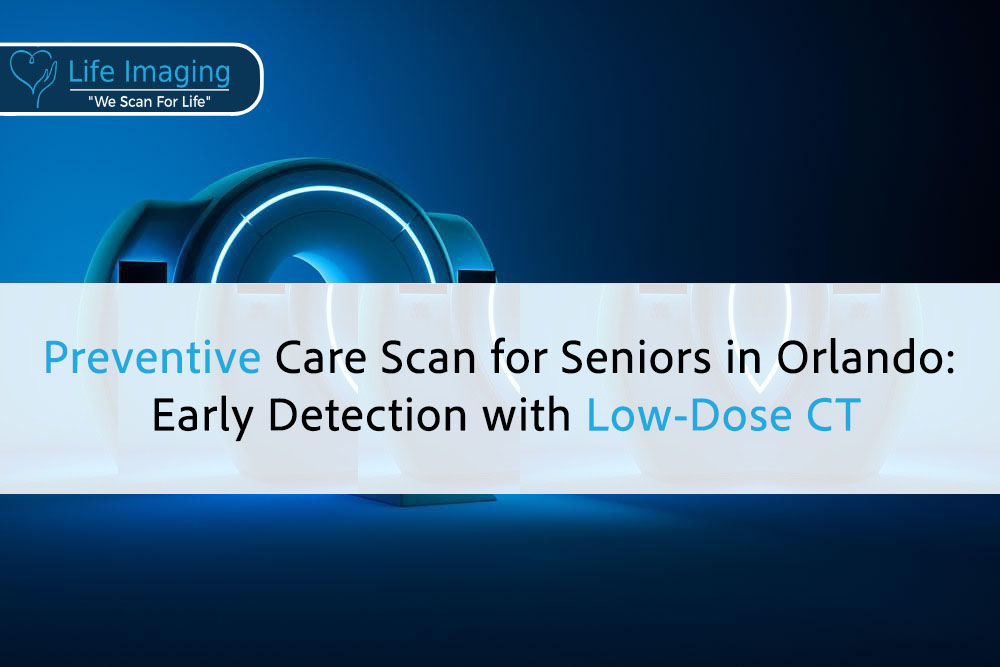
Introduction The best part of getting older is having time
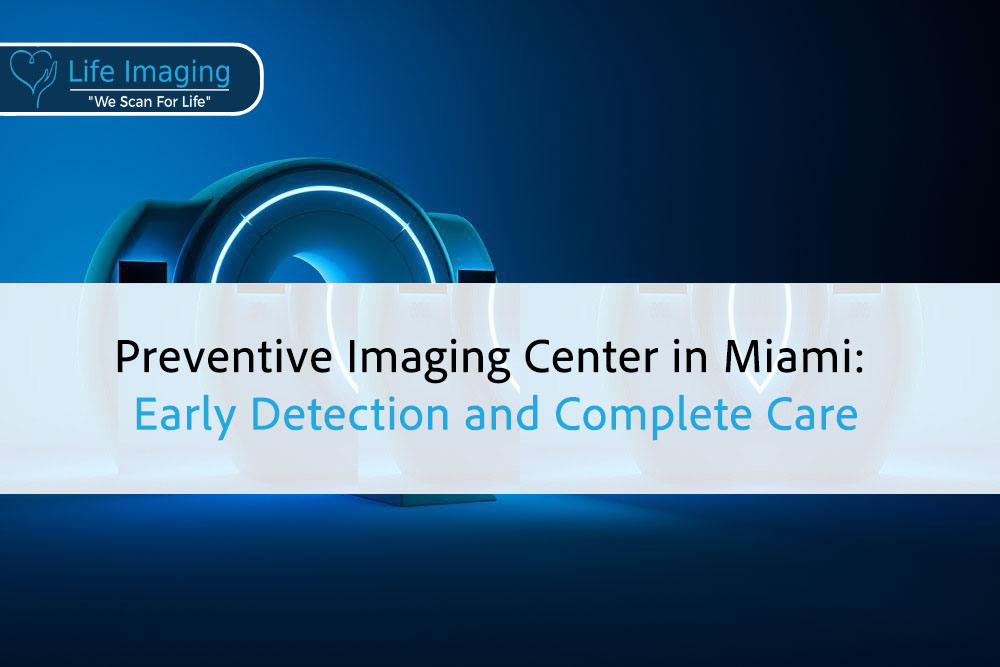
Introduction Good health isn’t just about treating problems, it’s about

* Get your free heart scan by confirming a few minimum requirements.
Our team will verify that you qualify before your scan is booked.
Copyright © 2025 Life Imaging – All Rights Reserved